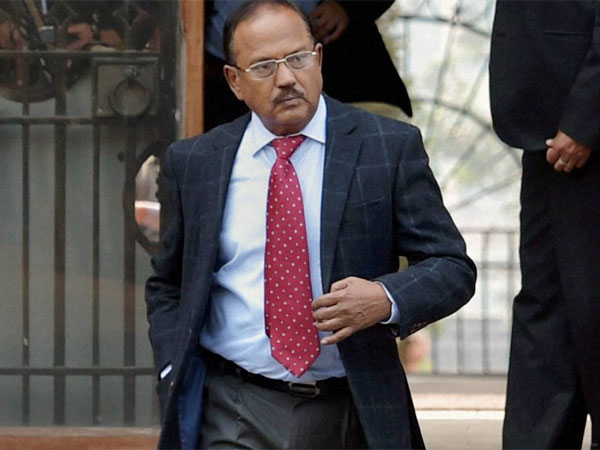Following on from the National Security Advisor (NSA) level India-Maldives-Sri Lanka trilateral meeting on maritime security held in November 2020, a trilateral secretariat was inaugurated in Colombo earlier this week on March 02, 2021. The NSA level meeting, which was held after a gap of six years and was attended by the Indian NSA Ajit Doval, the Maldivian Foreign Minister Mariya Didi and the Sri Lankan Defence Secretary Maj Gen (Retd) Kamal Gunaratne was significant in view of the numerous traditional and non traditional security challenges facing this region. The scope of the meeting therefore went beyond only the maritime domain and looked at the larger regional picture.
Why is this important?
“From an Indian perspective, the setting up of the Secretariat so soon after the meeting where institutionalisation of this trilateral engagement was discussed, was a reassuring confirmation of the growing concern amongst all countries of this region at the numerous prevailing traditional and non- traditional security challenges which need to be addressed, of which perhaps the greatest is the Chinese presence looming large over this region,” Commodore Anil Jai Singh, Vice President of the Indian Maritime Foundation, told Financial Express Online.
According to the former Indian Navy submariner, “An institutionalised framework such as this could not have come a moment too soon. It will enable these three countries to effectively counter the internal and external security challenges facing this region and also keep the Chinese dragon at bay. The presence of three observer nations at the trilateral meeting also holds out the promise of this construct expanding to include more members in the future.”
In the recent past, India had been forced on the back foot by China as it went about establishing the Belt and Road Initiative with its financial inducements to the countries in the region, augmenting and modernising their industrial and port infrastructure and exporting military hardware including ships, submarines and aircraft.
Who all attended the NSA level meet? Why is this important?
Bangladesh, Mauritius and Seychelles also participated virtually as observers. This reaffirmed the mutual commitment of these countries towards the security and stability of this region which also constitutes India’s strategic neighbourhood.
“This was also the first meeting since Prime Minister Narendra Modi had enunciated the SAGAR Doctrine during his visit to Mauritius in 2015 and hence this was also a reiteration of India’s effort at inclusive regional capacity building in the last five years,” says Commodore Anil Jai Singh.
Importance of the Secretariat: Expert View
Sharing his views with Financial Express Online, Commodore Anil Jai Singh says, “However, as is usually the case with most things Chinese, what one sees is not what one gets .Once the Chinese had them in their stranglehold, realisation struck that the Chinese money being used to build large projects with Chinese machinery and materials and by Chinese manpower was pushing these countries into a debt trap from where recovery would be well-nigh impossible without compromising their own national interest. Sri Lanka learnt it the hard way and had to lease Hambantota port to the Chinese for 99 years. Maldives too is feeling the strain of this debt and both these countries are now trying to distance themselves from the Chinese. India, through its inclusive and cooperative approach to capacity and capability building is offering support with no strings attached.”
“The recent development in Myanmar where the military has returned to power is also of concern. Myanmar too had been weaning itself away from China and deepening its engagement with India which led to India giving one of its Kilo class submarines to Myanmar less than four months ago to strengthen regional security in the Bay of Bengal region. The coup February 01, 2021 has generated a sense of uncertainty which China will definitely prey upon to exploit to regain its lost space in the region,” the Indian Navy veteran opines.
According to him, “In the wake of the Wuhan epidemic spreading across the globe which led countries to focus their attention on tackling this and the consequent economic fallout, China continued with its muscle flexing in the Indo-Pacific. The long border stand-off with India across the Line of Actual Control, its belligerence in the South China Sea, the growing maritime footprint in the Indian Ocean with its Belt and Road Initiative and increasing presence of PLA Navy vessels, research ships and fishing fleets clearly indicated its intent. This won it no friends and led to a global backlash which it would have least expected. However, this is unlikely to deter the Chinese from relentlessly pursuing their agenda.”
“China will therefore definitely not be too pleased with the setting up of this secretariat which has also found mention in the Chinese media (Xinhua). A scathing critique in its propagandist newspaper Global Times may soon follow,” he adds.
Source: FE
You may also like
-
IAF Aircraft Set Course For Exercise Eastern Bridge VII At Oman
-
India-us Working Together In Areas Like Critical Minerals, Supply Chains And Advanced Technologies: Shri Piyush Goyal
-
IAF Set To Host The Indian Defence Aviation Exposition-II At Jodhpur
-
Defence Secretary to co-chair 5th India-Philippines Joint Defence Cooperation Committee meeting in Manila
-
Simultaneous Launch Of ‘malpe And Mulki’, Fourth And Fifth Ships Of Asw Swc (Csl) Project
